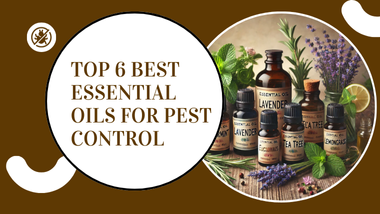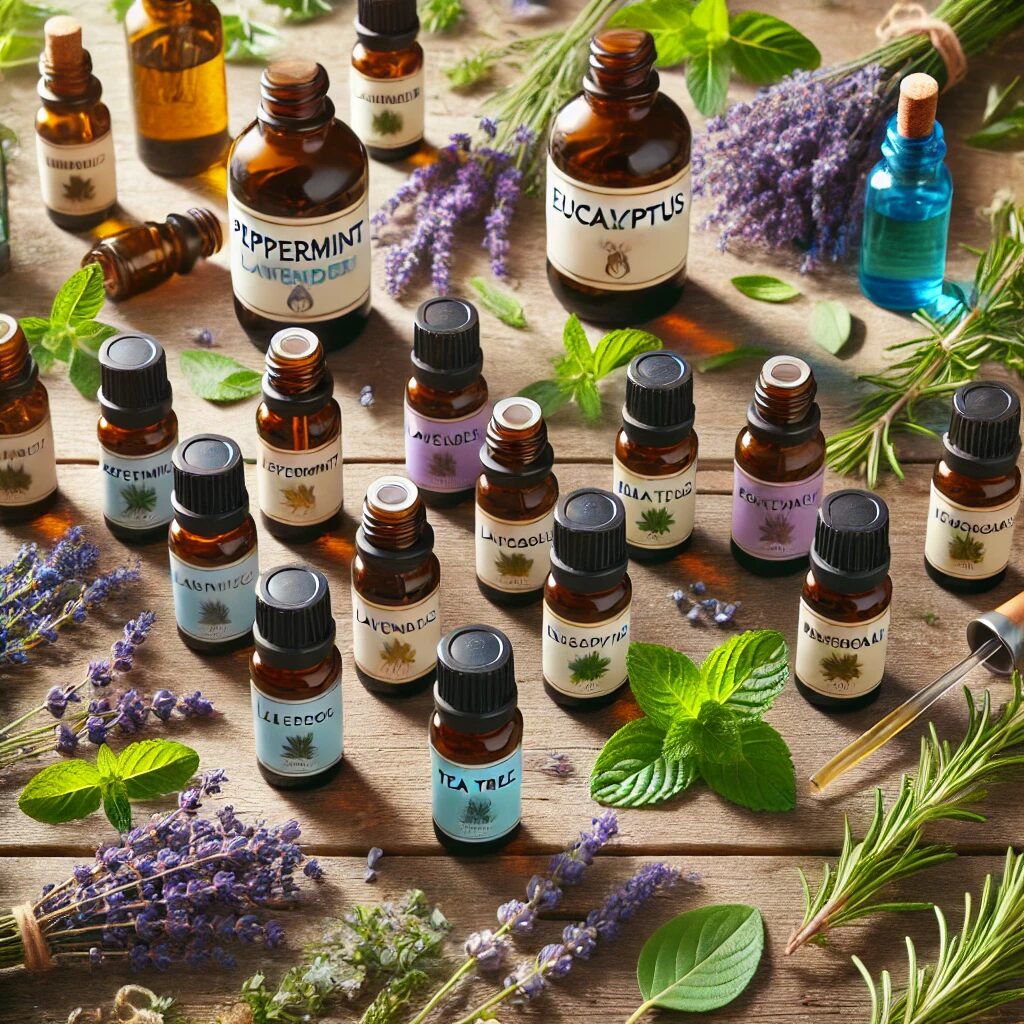
Want to get rid of bugs naturally using the best essential oils for pest control? There’s something satisfying about finding a natural way to deal with pests in your home.
We all want a safe and effective way to keep bugs and critters away, but many store-bought sprays are loaded with chemicals. That’s where essential oils come in.
These powerful plant extracts offer a natural alternative for pest control, and they smell great too! Whether you’re dealing with ants in the kitchen or mosquitoes on the porch, the best essential oils for pest control can help you maintain a pest-free environment.
Stick around as we explore seven oils that not only repel pests but are also easy to use. By the end, you’ll be ready to take on any pest problem naturally.
The Best Essential Oils for Pest Control
1. Peppermint Oil: Great for Repelling Spiders and Ants
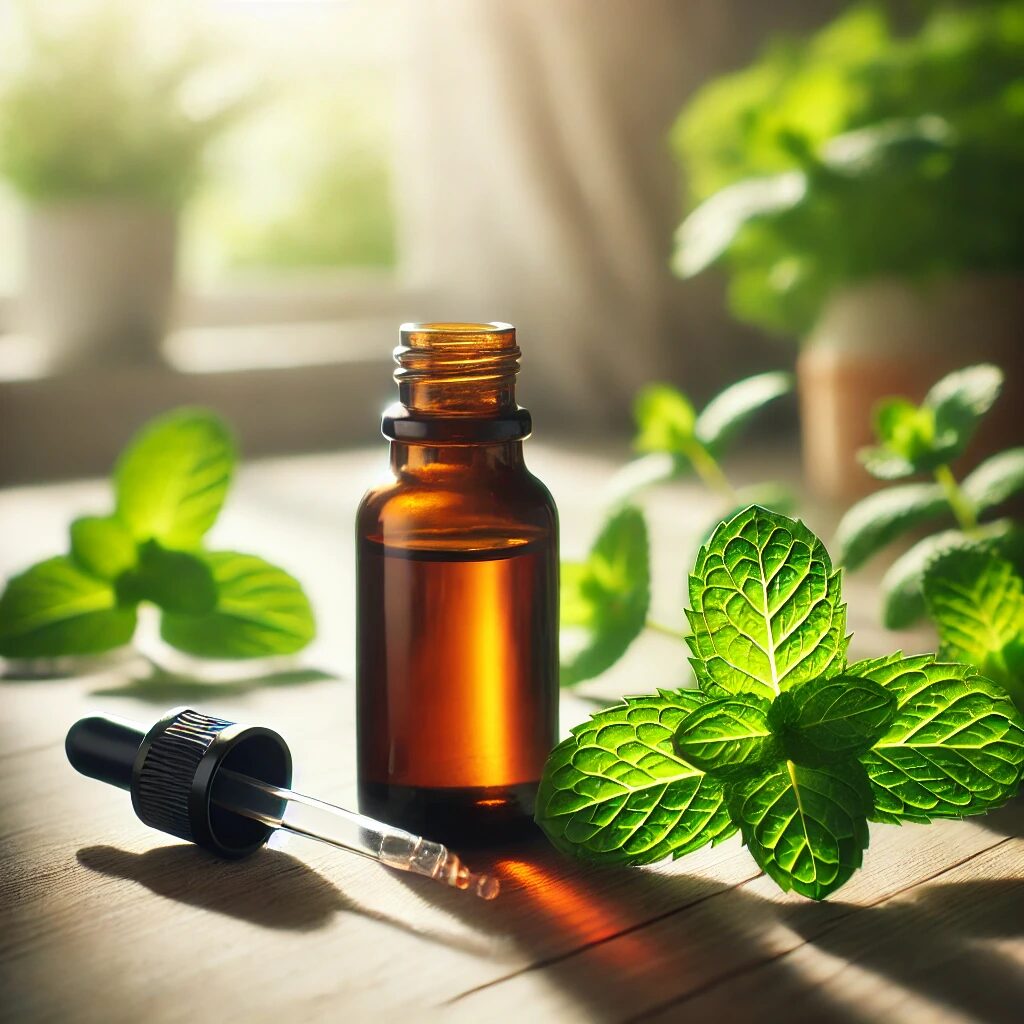
Peppermint oil is one of the most popular and effective essential oils for pest control, particularly when it comes to spiders and ants. check here for more information.
These pests rely heavily on scent trails to navigate and locate food sources, but the potent, minty aroma of peppermint oil is highly disruptive to their senses. The oil’s strong scent effectively masks these trails, disorienting the pests and making it challenging for them to find their way around.
The high menthol content in peppermint oil is what makes it so powerful. This compound not only repels ants and spiders but is also unappealing to a wide variety of insects, from mosquitoes to cockroaches.
For those concerned about the safety of family members or pets, peppermint oil offers peace of mind. Unlike conventional pesticides that can contain harmful ingredients, peppermint oil is a natural solution that can be safely applied in most areas around the home.
The invigorating scent leaves your living spaces feeling clean and energized, all while keeping unwanted critters at bay.
Peppermint oil’s versatility extends beyond pest control. Many people enjoy its aroma for its cooling and calming effects, which can be uplifting and stress-relieving.
Choose the best essential oils for pest control as peppermint oil, because you’re not only managing pests but also enhancing your environment with a fresh and revitalizing scent. Reapplying every few days helps maintain its potency, ensuring that spiders and ants stay away for good.
2. Lavender Oil: Perfect for Moths and Flies
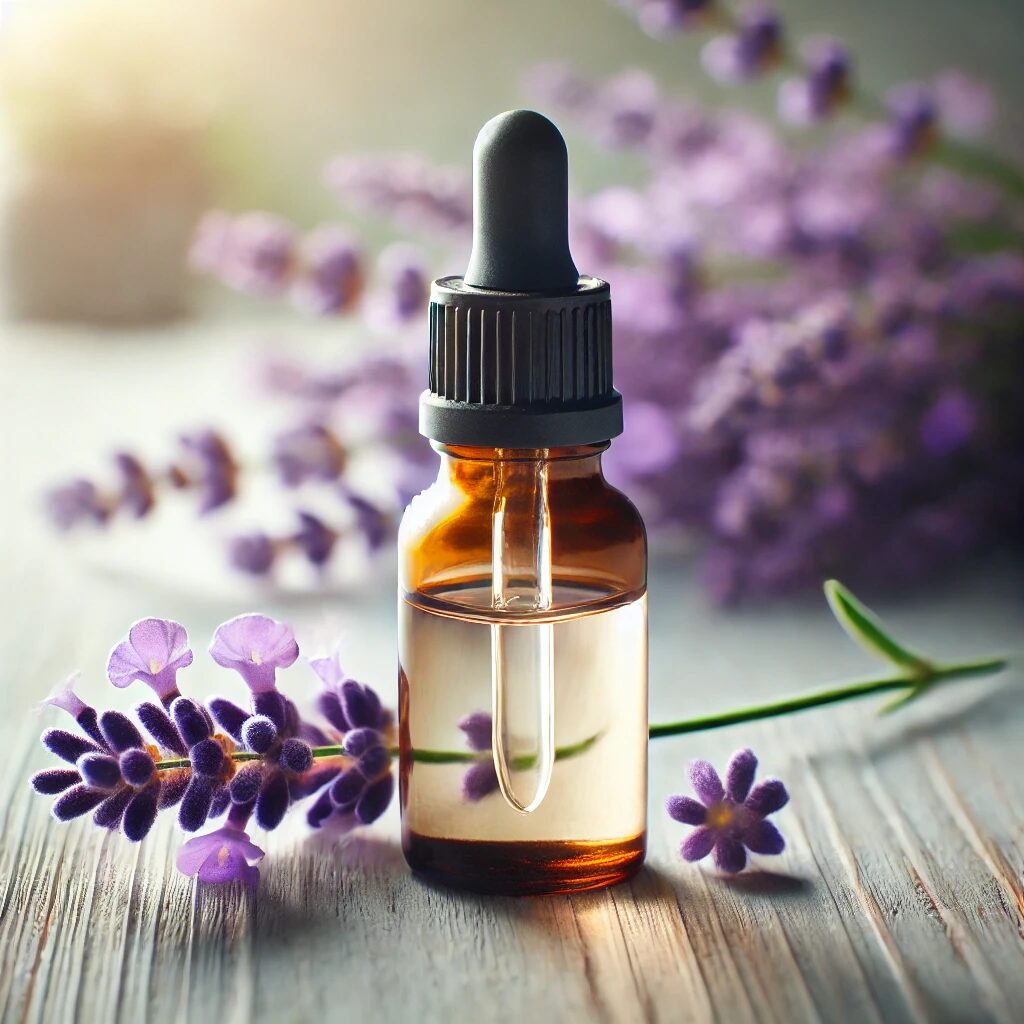
Lavender oil is a go-to essential oil for pest control, particularly when it comes to repelling moths and flies. Its sweet, floral aroma, while calming and pleasant to us, is highly disagreeable to many insects. The scent disrupts the sensory systems of these pests, making it difficult for them to navigate and encouraging them to stay away.
Moths, which are often attracted to clothes and fabrics, find lavender especially off-putting. This makes lavender oil an excellent choice for protecting your closets, drawers, and other storage spaces from these unwanted visitors.
Flies, which are notorious for invading kitchens and outdoor gatherings, are equally repelled by lavender’s aroma, helping to keep these areas bug-free.
Lavender oil is not only an effective repellent but also brings added benefits to your home. Known for its calming and relaxing properties, lavender can promote a sense of tranquility. Using it around the house not only keeps pests at bay but also creates a soothing environment. Its versatility extends beyond pest control, making it a popular choice for aromatherapy and relaxation.
Moreover, lavender oil can be safely used around the home, making it an ideal alternative to chemical sprays and other synthetic repellents.
A natural solution like lavender oil is not only better for the environment but also safer for children and pets, providing peace of mind when using the best essential oils for pest control. Regular use can help maintain its effectiveness, ensuring that your spaces remain moth and fly-free year-round.
3. Eucalyptus Oil: Effective Against Dust Mites and Bed Bugs
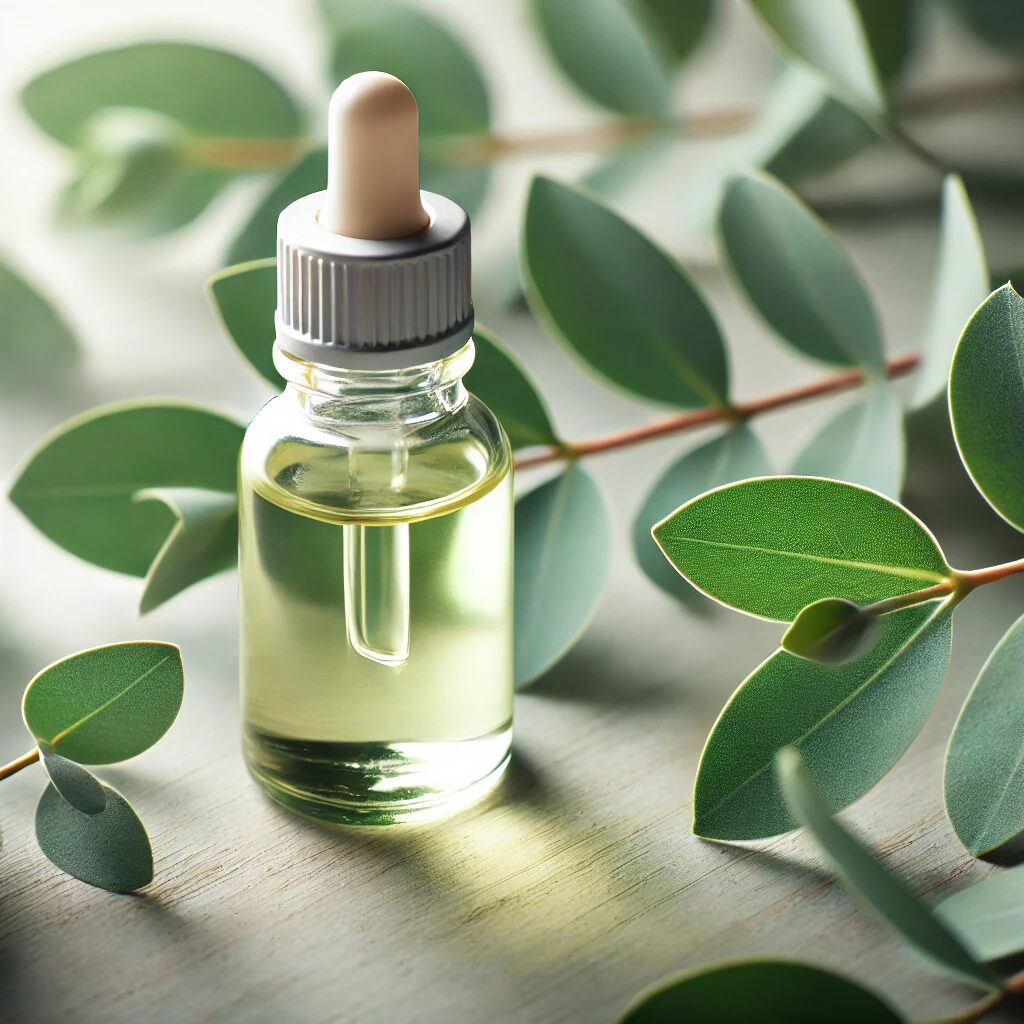
Eucalyptus oil is a powerhouse when it comes to tackling dust mites and bed bugs. Thanks to its antiseptic and insect-repellent properties, this oil not only helps keep these tiny intruders at bay but also contributes to a healthier sleeping environment.
The strong, camphoraceous aroma of eucalyptus oil is naturally offensive to dust mites and bed bugs, which makes it an excellent choice for those looking to manage these pests without harsh chemicals.
What makes eucalyptus oil especially appealing is its dual functionality. Beyond its pest-repelling capabilities, eucalyptus oil also acts as a natural deodorizer, giving your bedding and mattresses a refreshing boost. for more information click here.
This is particularly beneficial for those who suffer from allergies, as dust mites are common allergens. By using eucalyptus oil, you can reduce their presence and enjoy cleaner, fresher-smelling linens.
Eucalyptus oil’s cooling and soothing effects can also enhance relaxation, making it a pleasant addition to your sleep routine. Its ability to purify the air and keep common allergens at bay makes eucalyptus oil a valuable ally in maintaining a peaceful, pest-free home environment.
4. Tea Tree Oil: Ideal for Ants and Mosquitoes
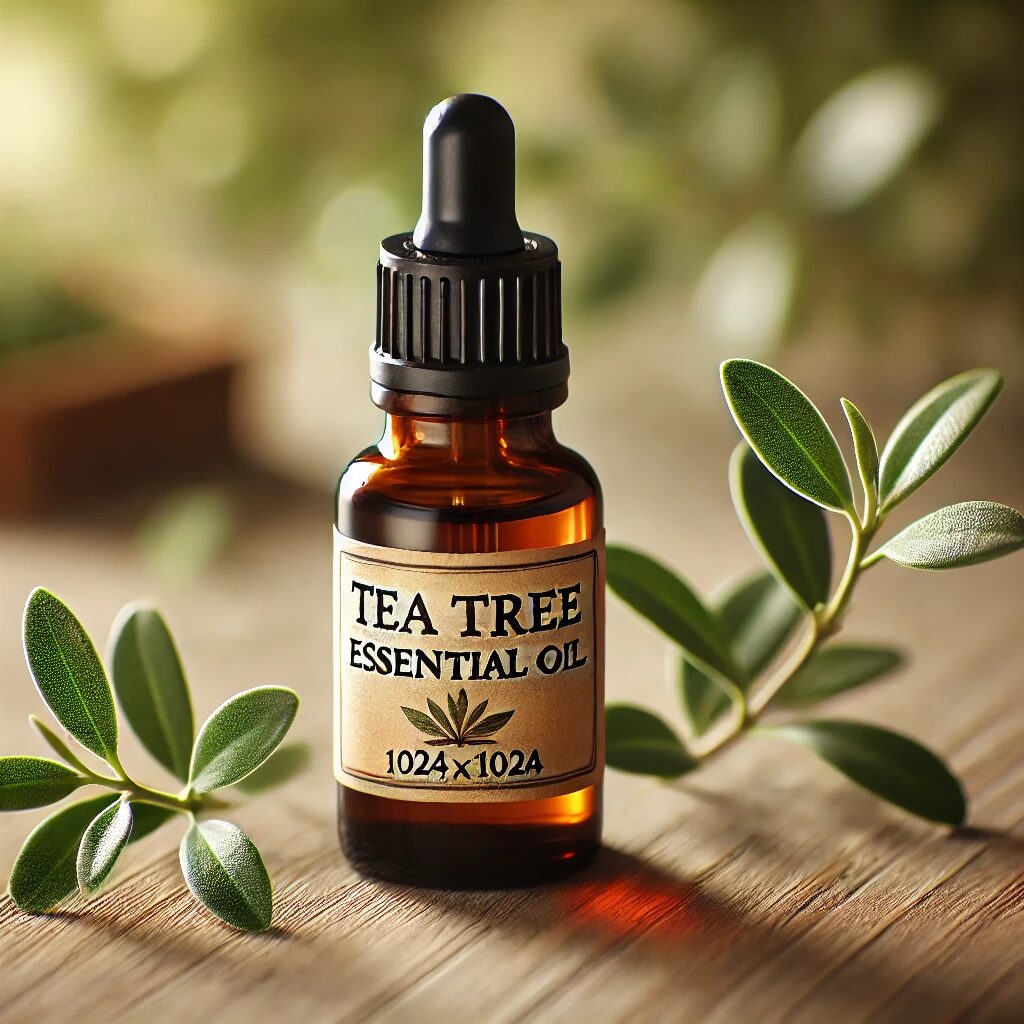
Tea tree oil is incredibly versatile, with powerful insect-repelling properties that make it effective against pests like ants and mosquitoes. Its strong, medicinal scent disrupts ants’ scent trails, which they use to navigate and communicate, making it a highly effective natural deterrent.
For mosquitoes, tea tree oil’s pungent aroma works similarly to citronella, masking the scents that usually attract these pesky insects. click here to learn more.
Beyond its ability to repel insects, tea tree oil is also known for its antibacterial and antifungal qualities, which makes it an excellent natural cleaner. By using tea tree oil for pest control, you’re not only repelling pests but also creating a cleaner, healthier environment.
This dual functionality means you can tackle household pests while also benefiting from tea tree oil’s cleansing properties, which can help reduce germs and mildew in your home.
Another advantage of tea tree oil is its ability to address a variety of pest issues. Whether you’re dealing with ants in the kitchen or mosquitoes in your outdoor spaces, tea tree oil can be a go-to solution.
Its potent, fresh scent also helps deodorize areas where it’s applied, leaving behind a pleasant aroma instead of a chemical smell. As a natural alternative, tea tree oil is a versatile and effective choice for keeping your home pest-free and clean.
5. Rosemary Oil: Protect Your Garden from Pests
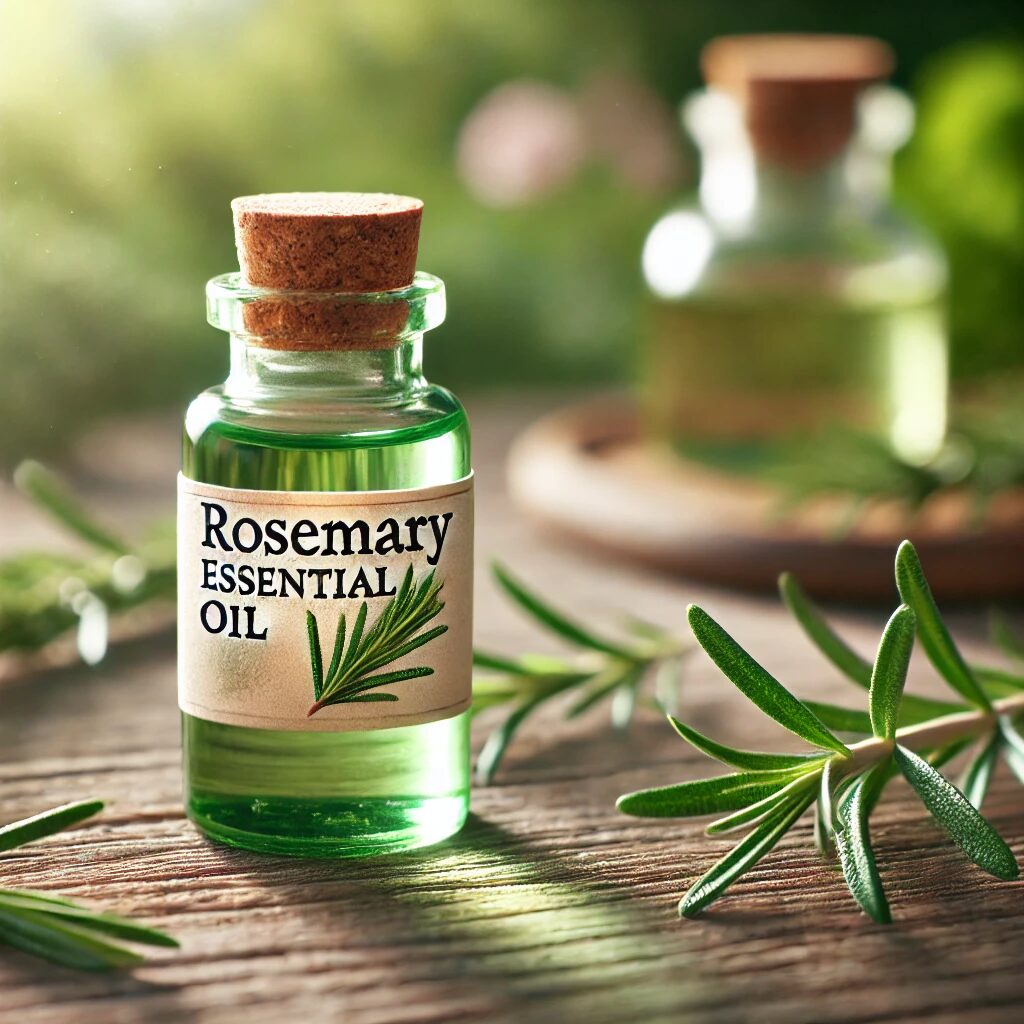
Rosemary oil is a gardener’s secret weapon against a wide range of garden pests. This aromatic herb not only adds flavor to your cooking but also serves as a natural deterrent for insects like aphids, cabbage moths, and beetles. Rosemary oil’s strong scent confuses and repels these pests, helping to keep your plants safe without the need for chemical pesticides.
Beyond its effectiveness, rosemary oil is gentle on plants and won’t harm the beneficial insects that your garden relies on, like bees and butterflies.
This makes it an excellent choice for eco-friendly pest control. When used regularly, rosemary oil can help maintain a balanced garden ecosystem, reducing the chances of pest infestations and promoting healthy plant growth.
The versatility of rosemary oil also extends to repelling soil-dwelling insects like root maggots and cutworms. These pests can cause significant damage to the roots and stems of plants, but rosemary oil helps to deter them by creating an inhospitable environment.
The oil’s antifungal properties can assist in preventing mold and mildew on plants, adding another layer of protection for your garden.
Using rosemary oil in your garden is straightforward and safe, and it provides a fragrant aroma that enhances the outdoor experience.
As you spray your plants, you’ll enjoy the fresh, herbal scent of rosemary wafting through the air, a natural, pleasant bonus to effective pest management.
Whether you’re cultivating a vegetable garden or a bed of ornamental flowers, rosemary oil is a valuable tool for keeping pests at bay and supporting a healthy, thriving garden.
6. Lemongrass Oil: Great for Fleas and Flies
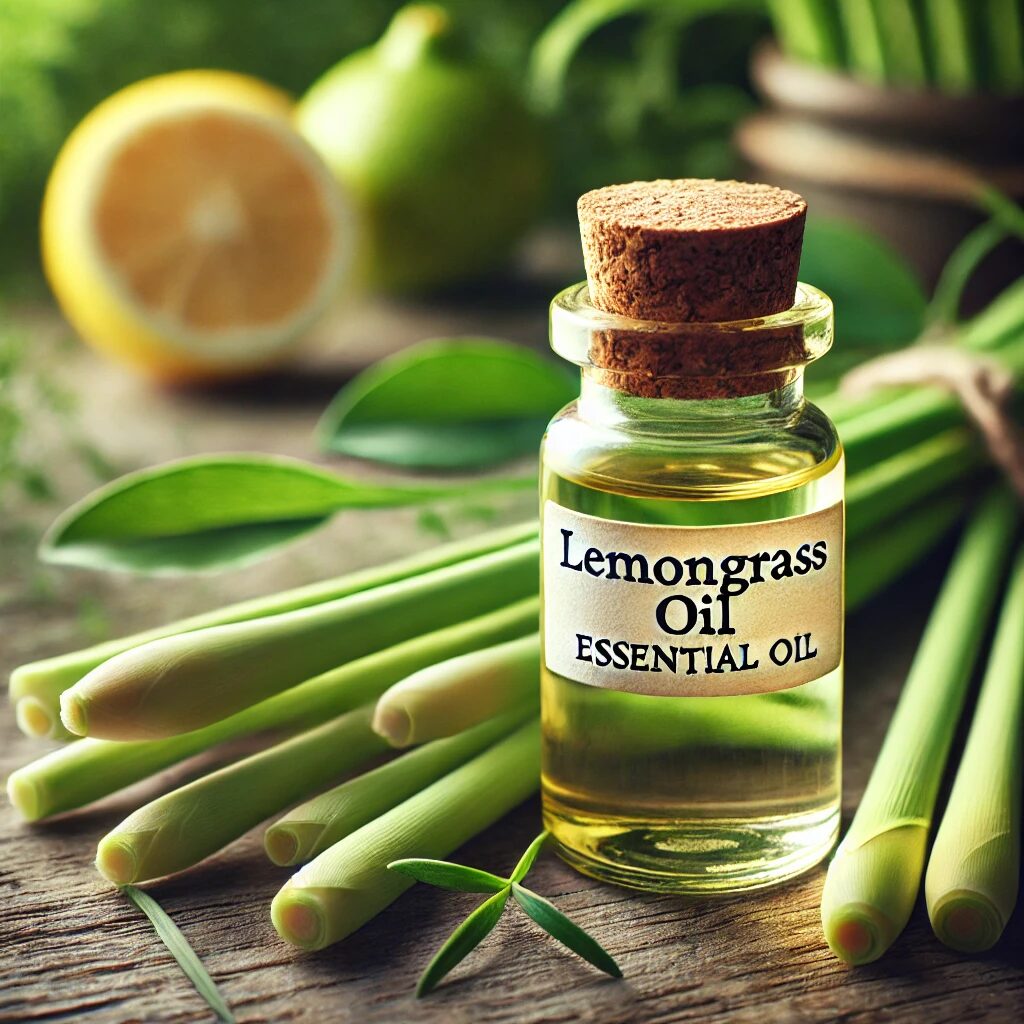
Lemongrass oil is a powerful ally when it comes to controlling fleas and flies, especially if you have pets. Its invigorating citrusy scent is not only refreshing but also packed with citral, a natural compound known for its insect-repellent properties. Lemongrass oil works by creating an environment that these pests find intolerable, effectively keeping them at bay.
Fleas, which often infest pets and their bedding, are particularly sensitive to the strong aroma of lemongrass oil. Applying it as part of your natural pest control routine can help protect your pets and home from these persistent pests without the need for harsh chemicals.
You can even use lemongrass oil as part of a DIY flea spray, adding it to water or carrier oil and spritzing it around areas where fleas are likely to hide, such as pet bedding, carpets, and corners.
Lemongrass oil is also effective against flies, which can be a nuisance both indoors and outdoors. Whether you’re enjoying a meal outside or trying to keep your kitchen free from flies, a quick spray of lemongrass oil can make all the difference.
Its fresh, lemony scent masks odors that attract flies, helping to reduce their presence and keep your space more comfortable.
What’s more, lemongrass oil’s natural antibacterial properties can help to sanitize surfaces, making it an excellent addition to your cleaning routine.
When incorporating lemongrass oil into your pest control methods as your best essential oil for pest control, you’re not only repelling pests but also creating a cleaner, more pleasant environment.
It’s an all-natural solution that’s safe for you, your family, and your pets, giving you peace of mind as you protect your home from fleas, flies, and other unwelcome visitors.
Conclusion
If you’re ready to make the switch to a more natural way of dealing with pests, these essential oils can be a great start. With a little creativity, you can create your own pest control solutions that are both effective and environmentally friendly.
For more tips on using natural products around the home, check out our guide on eco-friendly home hacks and our article on creating a pest-free garden. Embrace the power of essential oils and keep those pests at bay!
